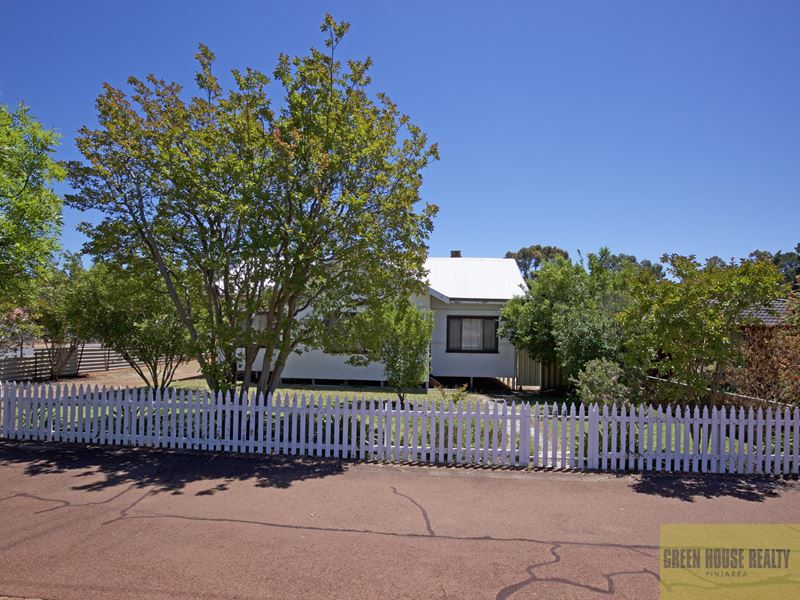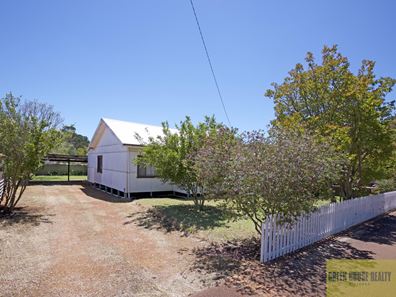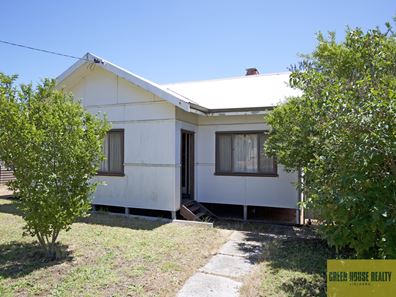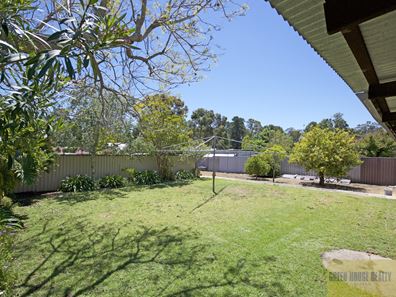Vintage Charm!
Very original home with rustic charm just waiting for its new owners fresh ideas. Great location in the heart of town, this 1/4 block has a lot of potential. The home is like stepping back in time...a 3 bedroom home with the basics and not much more. A handy man special, with endless possibilities. Priced to sell so be quick.
Call Andrew Butterly today on 0410 588 803
Property features
-
Carports 1
-
Toilets 1
Property snapshot by reiwa.com
This property at 44 McLarty Street, Dwellingup is a three bedroom, one bathroom house sold by Andrew Butterly at Green House Realty on 21 May 2020.
Looking to buy a similar property in the area? View other three bedroom properties for sale in Dwellingup or see other recently sold properties in Dwellingup.
Nearby schools
Dwellingup overview
Dwellingup is located in a timber and fruitgrowing area in the Darling Range ESE of Pinjarra. Townsite lots were surveyed at this place by Surveyor W.F. Rudall in 1909 after the Lands Department became aware that the site was planned as the terminus of the "Pinjarra-Marrinup Railway". Names suggested for the place by Rudall were "Dwellingerup" or "Marrinup", after nearby brooks, or "McLarty" after a local MLA who had been very active concerning the railway. Surveyor General H.F. Johnston chose "Dwellingupp" after being misinformed regarding the spelling of Dwellingerup Brook. Ignoring a suggestion from the Under Secretary to amend the name to "Dwellingdown", the Minister for Lands approved the name as "Dwellingup" in December 1909. Eventually, the spelling "Dwellingupp" was chosen by order of the Under Secretary for Lands, and the townsite was gazetted as Dwellingupp in February 1910. The spelling was amended to Dwellingup in 1915. Dwellingup is an Aboriginal name said to mean "place of nearby water". The town was burnt out by a bushfire in 1961 but was rebuilt.
The double 'p' spelling in the original gazettal of this name was used because the Lands and Surveys Department had adopted a system for spelling Aboriginal names developed by the Royal Geographical Society. A number of Aboriginal names ending in "up" were for a time spelt with the "upp" ending (including Kirupp, Kulikupp, Manjimupp and Mungalupp). The RGS system had a rule that vowels are pronounced as in Italian and consonants as in English. This would have meant that names ending in "up" should have been pronounced as "oop", because the Italian "u" was a long "u", as in flute. These Aboriginal names were meant to be pronounced as "up", and the Department asked the RGS for a rule to assist in correct pronunciation. The RGS solution was that doubling the following consonant shortened the preceding vowel, and this meant the "upp" ending ensured the "up" pronunciation. However, this particular rule was rescinded in 1915 for SW towns with the suffix "up", as the Australian way of pronouncing the letter "u" was almost always short, and rarely the Italian "oo".





